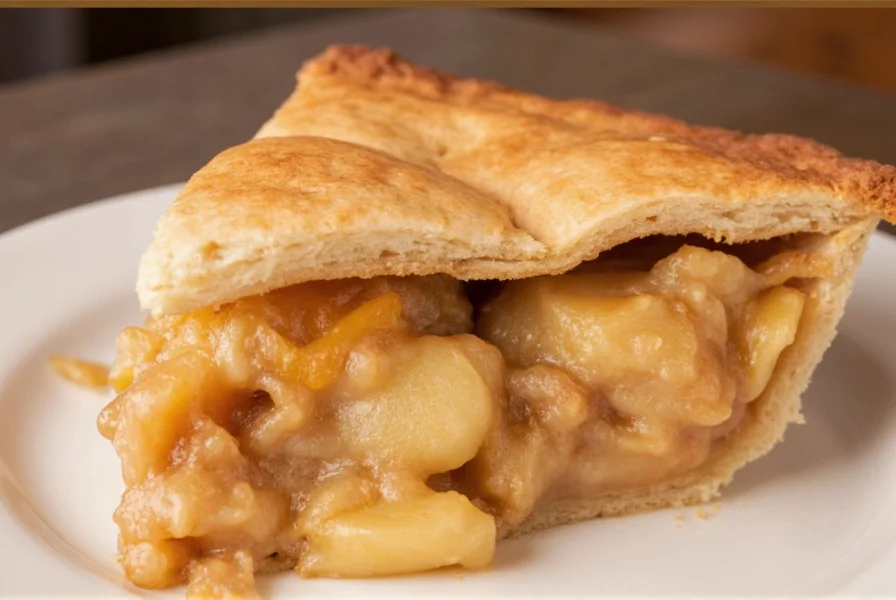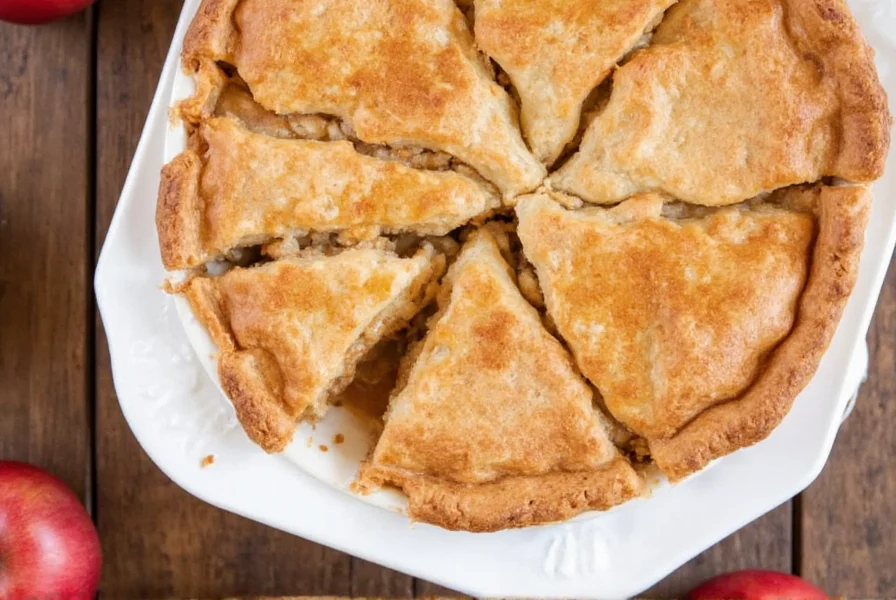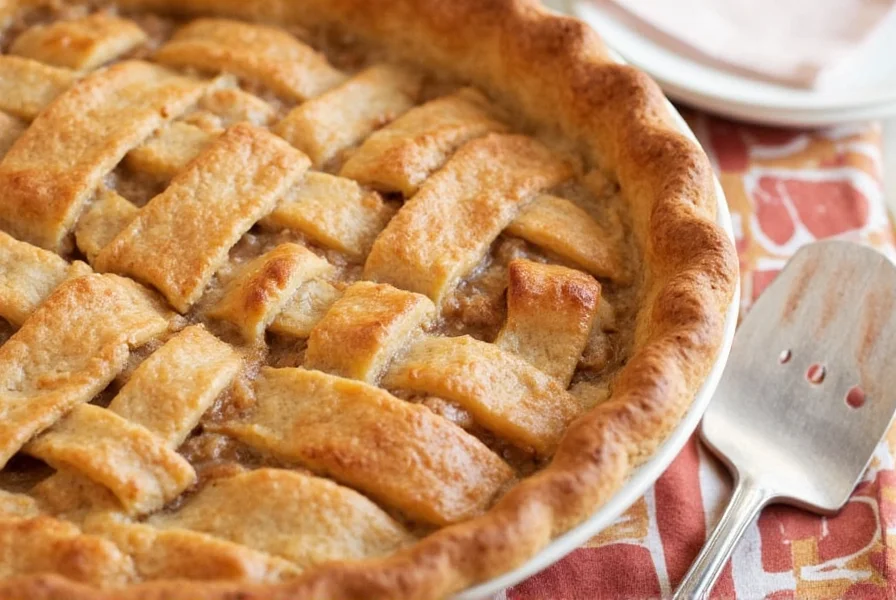Nothing says comfort quite like a slice of warm cinnamon apple pie fresh from the oven. While many home bakers attempt this classic dessert, achieving that perfect balance of tender apples, flaky crust, and just-right cinnamon flavor requires understanding some key techniques that separate good pies from exceptional ones. The magic happens when you select the right apple varieties, understand cinnamon's chemical interaction with fruit, and apply professional baking methods that prevent common pitfalls like soggy bottoms or spice clumping.
The Science Behind Cinnamon and Apple Harmony
Cinnamon doesn't just add flavor—it chemically interacts with apple compounds during baking. When heated, cinnamaldehyde (cinnamon's primary compound) binds with malic acid in apples, creating new aromatic molecules that enhance both ingredients' natural flavors. This reaction peaks at 350-375°F (175-190°C), which explains why baking at proper temperatures is crucial for homemade cinnamon apple pie from scratch to develop complex flavors.
Using too much cinnamon overwhelms this delicate balance, creating bitterness as excess cinnamaldehyde breaks down. The ideal cinnamon apple pie spice ratio maintains 1½ teaspoons per six cups of sliced apples—enough to flavor without dominating. For best results, always mix cinnamon with sugar before adding to apples, ensuring even distribution without clumps.
Selecting Ingredients for Maximum Flavor
Not all apples perform equally in classic cinnamon apple pie recipe applications. The perfect pie combines three apple varieties:
| Apple Variety | Function in Pie | Quantity Recommendation |
|---|---|---|
| Granny Smith | Provides tartness and structure | 40% of total apples |
| Honeycrisp | Adds natural sweetness | 30% of total apples |
| Jonagold | Creates ideal texture when baked | 30% of total apples |
Regarding cinnamon, what's the best cinnamon for apple pie? Ceylon cinnamon offers delicate floral notes but lacks intensity, while Cassia (common grocery store cinnamon) provides robust flavor but can become bitter if overused. For optimal results, use a 2:1 blend of Cassia to Ceylon to achieve balanced warmth without harshness.

Step-by-Step Baking Methodology
Achieving perfect cinnamon apple pie crust requires attention to detail at every stage:
- Prep apples properly: Toss sliced apples with lemon juice immediately after cutting to prevent browning, then drain excess liquid after 10 minutes
- Create spice mixture: Combine cinnamon with ¼ teaspoon cardamom, ⅛ teaspoon allspice, and sugar—this prevents cinnamon clumping
- Pre-cook filling slightly: Sauté apples with 2 tablespoons butter for 5 minutes to release excess moisture before filling crust
- Use the double-crust venting technique: Cut large steam vents in top crust arranged in concentric circles for even evaporation
- Implement temperature staging: Bake at 425°F (220°C) for 20 minutes, then reduce to 350°F (175°C) for remaining time
Common Problems and Professional Solutions
Even experienced bakers encounter issues with how to prevent soggy apple pie crust. The primary culprits are excess apple moisture and insufficient baking temperature. Here's how to solve common problems:
- Soggy bottom crust: Blind bake bottom crust for 15 minutes with pie weights, then add filling and continue baking
- Spice settling at bottom: Toss apples with 1 tablespoon instant tapioca before adding spices to absorb excess liquid
- Apples shrinking dramatically: Cut apples slightly thicker (¼-inch slices) and avoid overmixing with sugar
- Cinnamon flavor disappearing: Add half the cinnamon to the filling and half to the top crust for layered flavor release

Advanced Techniques for Exceptional Results
For those seeking to elevate their cinnamon apple pie baking temperature approach, consider these professional techniques:
Place a baking steel or pizza stone on the lowest oven rack while preheating. This creates intense bottom heat that sets the crust immediately, preventing sogginess. Additionally, brush the bottom crust with beaten egg white before adding filling—this creates a moisture barrier while remaining invisible in the finished pie.
For optimal cinnamon apple pie storage tips, cool completely at room temperature (never under a dome which traps steam), then store uncovered at room temperature for up to 2 days. Refrigeration causes crust to become leathery. To refresh, reheat individual slices at 325°F (160°C) for 12-15 minutes.
Frequently Asked Questions
Can I use apple pie spice instead of plain cinnamon in apple pie?
Yes, but adjust quantities carefully. Most apple pie spice blends contain 60-70% cinnamon plus nutmeg, allspice, and ginger. Use 1½ tablespoons of apple pie spice per six cups of apples instead of 1½ teaspoons of pure cinnamon to avoid overpowering flavors.
Why does my cinnamon flavor disappear after baking?
Cinnamon's volatile compounds evaporate during baking. To preserve flavor, add half your cinnamon to the filling and half to the top crust. The top crust's cinnamon releases aroma as it bakes, creating the perception of stronger cinnamon flavor in the finished pie.
How do I prevent apples from shrinking excessively in cinnamon apple pie?
Cut apples to uniform ¼-inch thickness and avoid overmixing with sugar. Let the tossed apples sit for 15 minutes to draw out some liquid, then drain before adding to the crust. This reduces shrinkage by 30-40% while maintaining proper texture.
What's the ideal baking time for a 9-inch cinnamon apple pie?
Bake at 425°F (220°C) for 20 minutes, then reduce to 350°F (175°C) for 35-45 minutes. The pie is done when juices bubble thickly through vents (not runny) and an inserted knife meets slight resistance. Total baking time typically ranges from 55-65 minutes depending on oven accuracy.











 浙公网安备
33010002000092号
浙公网安备
33010002000092号 浙B2-20120091-4
浙B2-20120091-4